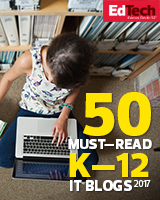Tip of the Week: End of the Year Self-Reflection and Student Evaluations

Teacher evaluation is one of the hot topics this spring here in the Sunflower state. How do we best measure whether a teacher is good or not? What questions do we ask? What data do we look at?
Teacher quality is important. But I personally have issues with politicians and others not directly involved on the front lines claiming to know best when it comes to measuring teacher quality. Common sense and research suggests that kids are successful or not for lots of reasons.
And while the political mess of teacher evaluation by schools and districts will continue, I still believe that as professionals we have an obligation to reflect on a personal level about our own best practice. Constant improvement is a good thing. And I also believe that there is a lot of value in asking our kids, our customers, to be a part of that evaluation process.
We’re not talking here about formal teacher evaluations here – this is personal professional development. Asking questions about what we do and how it impacts our students.
I never really thought much about having my students complete evaluations during my first couple of years teaching. It was obvious, even to a rookie teacher, what needed to change, right? Plus, it just wasn’t done. I mean, who asks for the opinions of school children?
I would always try to spend time reflecting at the end of the year:
- What went well?
- What went wrong?
- Were my assessments valid?
- Did I handle classroom management issues effectively?
- What content should I add / eliminate for next year?
- Do I need to adjust my rubrics?
But it was only one point of reference. And we know how incomplete any sort of administrative evaluation can be. Some excellent mentors eventually convinced me that feedback from my customers would be a good idea, that a good student evaluation can help in my reflective process.
So I started talking more with my kids, both informally throughout the year and formally at the end. Questions about the classroom environment and arrangement, did I provide enough time for projects, how well did I respond to student questions, did I create a friendly learning climate, what strategies and activities worked best, what sort of communication works best, more or less technology and what they liked / disliked in general.
Need a bit more rationale for this?
Try an article, Why Kids Should Grade Teachers, from The Atlantic that discusses the power of student feedback. You can find the Measures of Effective Teaching research mentioned in the article here. And you may not agree with all of it. I get that. But the idea still makes sense to me. Kids spent months in my classroom – their perspective is important in helping me understand the impact I’m having on them, good and bad.
Students should feel free to put their name on the evaluation or complete it anonymously. And while you’ll need to take the information with a grain of salt, you also get some great feedback and insightful comments.
I’ve attached a couple of quick samples. Feel free to adapt them for content and age levels.
- Teacher Evaluation by Students – Basic version
- Teacher Evaluation by Students – Bit more complex
Reflect away.
















Super, I was planning on writing an teacher evaluation for my students to fill out this week. Your blog is a great starting point!
Connie,
Glad you found it useful! Have a great end to the year.
glennw